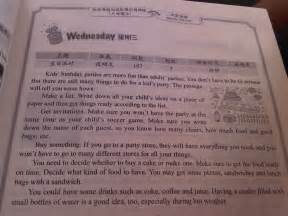搞清洁翻译英语怎么说
Title: Understanding the Cleaning Industry: Translating "搞清洁" into English

Cleaning, in its essence, is the meticulous process of removing dirt, impurities, and unwanted substances from surfaces, objects, environments, or even data. In Chinese, the phrase "搞清洁" encompasses various activities related to cleaning, ranging from simple household chores to professional janitorial services. When translating "搞清洁" into English, it's crucial to consider the context in which the term is used and select the most appropriate English equivalent.
1.
Housekeeping
: When "搞清洁" pertains to routine cleaning tasks performed within a household or residential setting, the term "housekeeping" fits well. Housekeeping involves activities such as dusting, vacuuming, mopping, and tidying up living spaces to maintain cleanliness and orderliness.2.
Cleaning
: In a general sense, "搞清洁" can be directly translated as "cleaning." This term is broad and can encompass various cleaning activities, including but not limited to, cleaning surfaces, removing stains, and disinfecting areas to ensure hygiene.3.
Janitorial Services
: For professional cleaning services provided in commercial, industrial, or institutional settings, such as office buildings, schools, or hospitals, the term "janitorial services" is more appropriate. Janitorial services involve comprehensive cleaning and maintenance tasks carried out by trained professionals to uphold cleanliness standards in these environments.4.
Sanitization and Disinfection
: When the emphasis of "搞清洁" is on eliminating germs, bacteria, and other pathogens to prevent the spread of diseases, the terms "sanitization" and "disinfection" are used. Sanitization refers to reducing the number of bacteria to a safe level, while disinfection involves killing or inactivating microorganisms to eliminate potential health hazards.5.
Cleaning Up
: In informal contexts or when referring to quickly tidying or removing messes, the phrase "cleaning up" is suitable. It implies a swift and often temporary effort to restore cleanliness to a particular area or situation.6.
Hygiene Maintenance
: When the focus of "搞清洁" extends beyond mere cleanliness to encompass overall hygiene and health standards, the term "hygiene maintenance" can be used. This emphasizes the importance of not only removing visible dirt but also ensuring a hygienic environment to promote wellbeing.7.
Environmental Cleaning
: In specialized contexts such as biohazard cleanup or environmental remediation, the term "environmental cleaning" may be applicable. It involves the removal of hazardous substances or pollutants from a particular area to restore safety and environmental integrity.8.
Deep Cleaning
: For thorough and intensive cleaning tasks that go beyond regular maintenance, the term "deep cleaning" is used. Deep cleaning involves meticulous attention to detail and often includes tasks such as scrubbing, degreasing, and sanitizing hardtoreach areas.9.
Restoration Cleaning
: In situations where cleaning is required to restore something to its original condition or appearance, such as after a renovation or a disaster, the term "restoration cleaning" can be employed. This implies a comprehensive cleaning process aimed at revitalizing and rejuvenating the affected area.In conclusion, the translation of "搞清洁" into English depends on the specific context and nuances of the cleaning tasks involved. Whether it's household chores, professional janitorial services, or specialized cleaning procedures, selecting the appropriate English term ensures clear communication and understanding of the intended meaning.











